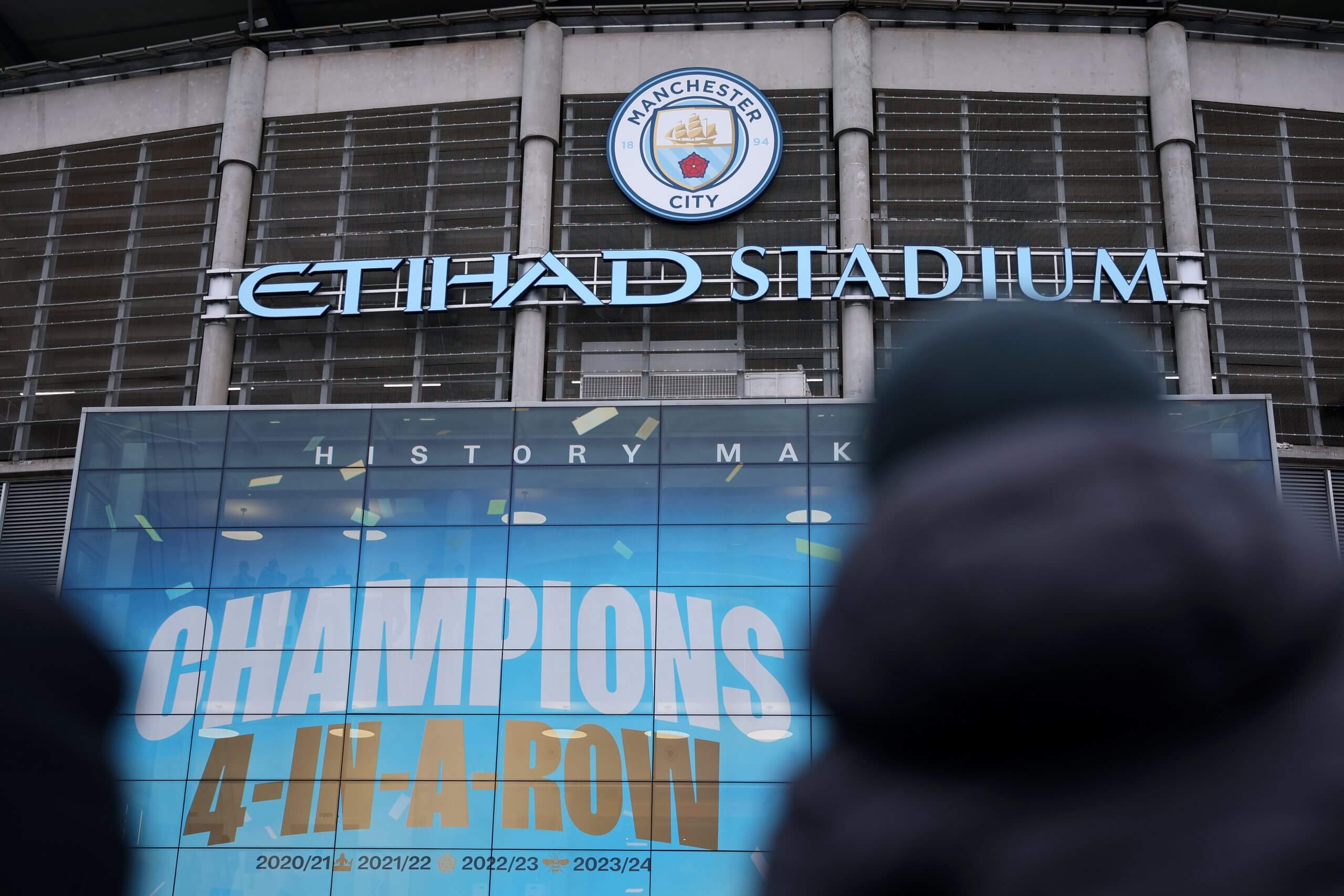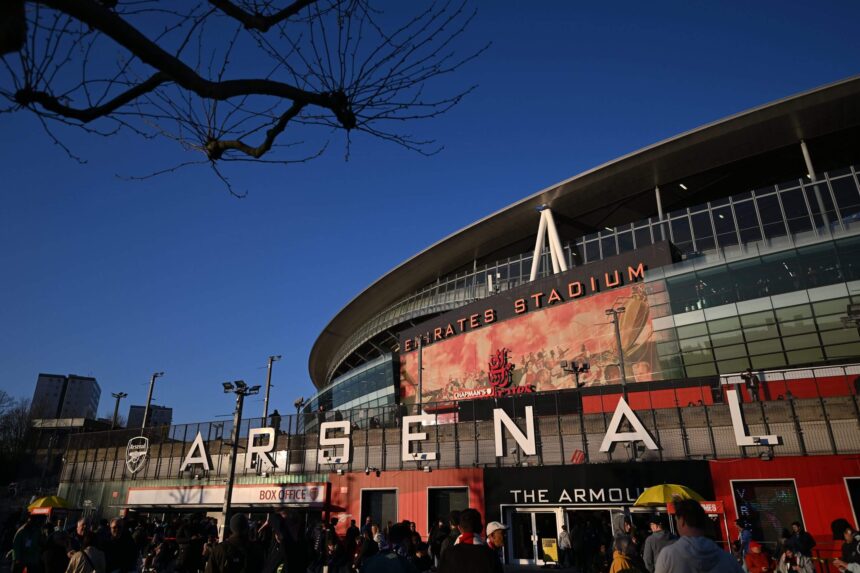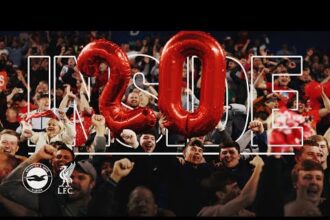The Premier League has written to its clubs to inform them about the second legal challenge Manchester City launched in relation to their amended Associated Party Transactions (APT) rules earlier this year.
An independent tribunal comprised of Lord Dyson, Christopher Vajda KC and Sir Nigel Teare concluded that the APT rules in place between December 2021 and November 2024 were “unlawful” and “void and unenforceable”.
Advertisement
Premier League clubs then voted through amendments to the APT rules in November, despite Manchester City warning them against doing so until the tribunal had released its full ruling.
And on February 6, Richard Masters, the Premier League’s chief executive, wrote to clubs to inform them that City had launched a legal challenge against the amended APT rules.
Following on from that, the Premier League has now written to clubs to provide an update on the process. In it, the Premier League included a statement of claim outlining why City believe the amended rules to be unlawful.
What’s the new development?
After Manchester City launched a fresh challenge against the Premier League’s latest version of the APT rules, both parties will be readying themselves for another legal showdown.
But once that legal claim had been lodged, it is standard procedure from the league’s perspective to then tell its clubs what is happening.
So, with that in mind, the Premier League has now written to the other 19 clubs to inform them of the process that will now be followed. This included a statement of claims that details what Manchester City are challenging regarding the rules.
It is important to note that the latest development is not the beginning of another legal challenge — it is all tied to the one City launched in February.
Dan Sheldon
What are shareholder loans?
Shareholder loans are when clubs borrow money from their ownership, usually interest-free. According to City, and agreed by the panel, as a matter of principle, an interest-free loan cannot be fair market value — and, therefore, this is the sort of loophole APT laws need to close.
The likes of Arsenal, Everton, and Brighton & Hove Albion all have over £250million ($316m) in interest-free loans from their shareholders.
Jacob Whitehead
Arsenal have interest-free loans from shareholders (Shaun Botterill/Getty Images)
What’s Man City’s issue with them?
City believe that clubs not having to pay interest on loans granted to them by their owners is unfair because it effectively gives those clubs an advantage.
Interest on loans can amount to millions of pounds, so avoiding those — due to a close relationship with an owner — should be considered in a similar way to how sponsorships are scrutinised if they are deemed to be from a company ‘associated’ to a club. In essence, City say that if their sponsorship deals with Abu Dhabi-based companies are put under the microscope and could potentially have new values assigned to them, the interest that would normally be paid on loans should be scrutinised, too.
Advertisement
They say that this should be factored into PSR calculations and in their latest legal challenge, they provide figures showing that certain clubs have benefitted in this way.
Sam Lee
Which clubs use them most and why?
Based on the most recent figures to the summer of 2024, Everton led the way, with £450.8million due to the Farhad Moshiri-controlled Bluesky Capital Limited. That loan was converted to equity in full when the club was sold to The Friedkin Group last September.
The loan was interest-free. If charged at market rates, Everton would have been on the hook for significant financing costs, which would have worsened their already fraught profit and sustainability Rules (PSR) position. Confusion around how the funds from Moshiri were used was one of the key areas of dispute in Everton’s PSR battle with the Premier League last season.
In all, six clubs owed their owners (or related parties) over £100million at the last check. A look at five of those clubs shows a common theme. All of them, bar Chelsea, can link at least some of their ‘internal’ debt to building new stadia or enhancing existing facilities. Naturally, those improvements flow through eventually in higher gate receipts, helping clubs’ bottom lines, but the Premier League’s PSR rules also encourage clubs to spend on infrastructure.
That isn’t all shareholder loans get spent on. Brighton, for example, owed owner Tony Bloom £406.4million as recently as June 2022. The club built a new stadium under Bloom in 2011, though it only cost £101m per their accounts at the time. It’s undeniable Brighton benefited from Bloom’s interest-free funding in their march up the pyramid. The club has, however, repaid £106.7m to him over the past two seasons. Doing so didn’t impact the club’s PSR figures but did constitute a substantial cash outflow.
At the other end of the scale, City themselves owe their owners nothing. The club was long funded by equity under the current ownership, much like Newcastle United since October 2021. Those two clubs’ owners have rather deeper pockets than most, so funding has been provided with seemingly little expectation of, or need for, repayment.
Even clubs without owner loans on their books aren’t necessarily similar. Where City and Newcastle have minimal debt overall, Tottenham Hotspur took on huge external loans to fund their new stadium, with none of the money for the build coming from their owners. Spurs spent £29.7million on servicing their £851.4m debts last season.
Chris Weatherspoon
Are they a competitive advantage?
As with just about everything to do with Premier League finances these days, nuance abounds. On the face of it, owners ploughing in hundreds of millions interest-free, or at low interest, does confer an advantage over those clubs that are left to tap alternative funding sources — particularly in an era of rising interest rates. Clubs still have to manage any subsequent losses carefully, but the argument around fairness centres on the fact they can do so without the need to charge what those loans would normally cost in interest.
Advertisement
Yet it’s hardly that simple. Take Arsenal. Up until 2020, the club’s debt was entirely external, brought about by their building of the Emirates Stadium. Their owner debt (which isn’t interest-free, either) only leapt us as the pandemic hammered gate revenues — which were linked to the outstanding bonds. Arsenal’s owners stepped in and refinanced the debt to the tune of £202million, incurring £32.2m in costs to repay the bonds early, so it’s not as straightforward as stating they’ve benefitted from £300m-plus in low-interest financing.
City’s pushing of the matter is unlikely to be solely focused on their belief other clubs have an unfair advantage. This latest claim appears to be yet another front in its ongoing legal tussle with the Premier League.
After all, City have rarely owed their owners anything since their late 2008 takeover by the Abu Dhabi United Group despite receiving huge amounts from them, and they’ve benefited more than most from financial regulations subsequently being introduced. In the five seasons before the inception of Premier League PSR (then known as Financial Fair Play rules) in 2013-14, City received £984.8million in owner funding, much of it in equity. That conferred a huge competitive advantage. Had PSR loss limits been in place then, City would have breached dramatically. Obviously, they weren’t, and clubs act in accordance with the existing conditions of the time.
Yet that presents another question from this latest case: what if backdating interest on shareholder loans to 2021, as City appear to be advocating, pushes a club into a PSR breach? Should the club be punished when they could argue they would not have taken out the loans if the rules were different?
The answer, almost certainly, would lie in yet more courtroom battles.
Is this related to the 115 case?
This is a short answer: no. Not officially, anyway. All of this stuff goes back to last year’s legal challenge against the legality of the Premier League’s APT regulations, which was, legally, entirely separate to the ongoing saga related to the 130 charges against City. All of the fall-out, including Friday’s updates, relate to associated party transactions. This second challenge from City is to ensure that the Premier League properly scrutinise the interest-free shareholder loans, something that came from the first challenge.
In terms of any ‘unofficial’ crossovers to the much-anticipated charges, any legal defeats for the Premier League — whether at the hands of City’s lawyers or anybody else’s — are likely to give City encouragement while they, and the rest of us, await the much bigger verdict. Plus, one byproduct of the APT challenge may see Arsenal and Brighton, two of City’s biggest rivals off the pitch, handed a considerable PSR headache.
Sam Lee

City have won the Premier League four times in a row (Alex Pantling/Getty Images)
What happens next?
Both parties, unsurprisingly, are confident they will emerge victorious following the tribunal, which is being chaired by the same three-person panel, that is yet to take place regarding the second APT challenge.
As it stands, the existing APT rules — voted in by clubs in November — remain in place and, for now, are deemed to be legally sound.
Advertisement
Before that vote took place, City warned their fellow Premier League sides not to vote through any changes to the rules until the tribunal had delivered its full verdict in relation to their first legal challenge.
And on the back of their victory in February, City will undoubtedly feel confident they have a strong case to present when it comes to getting the amended APT regulations thrown out.
If that proves to be the case, then it will be another significant defeat for the Premier League as far as its APT rules are concerned.
Dan Sheldon
(Top photo: Carl Recine/Getty Images)










